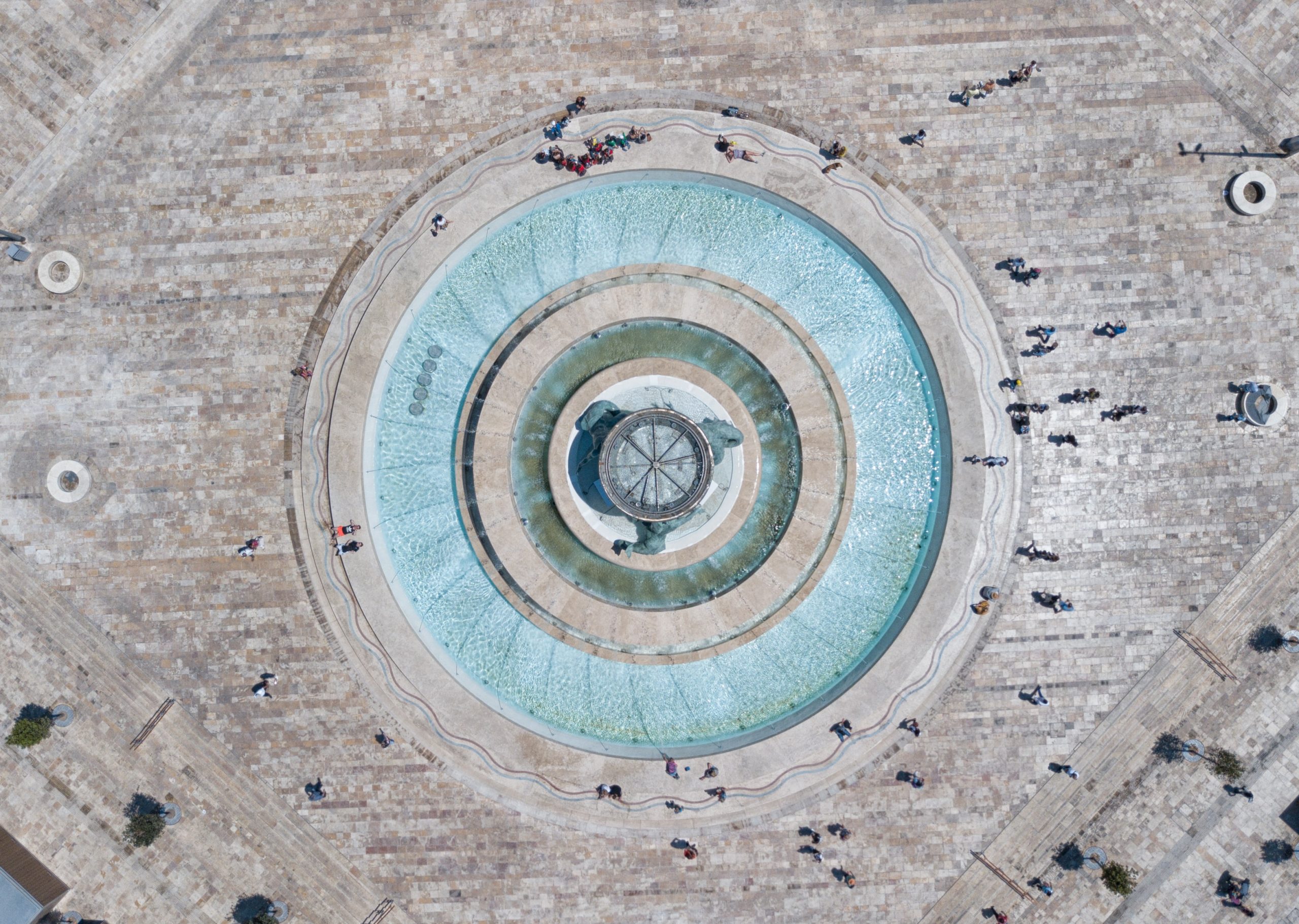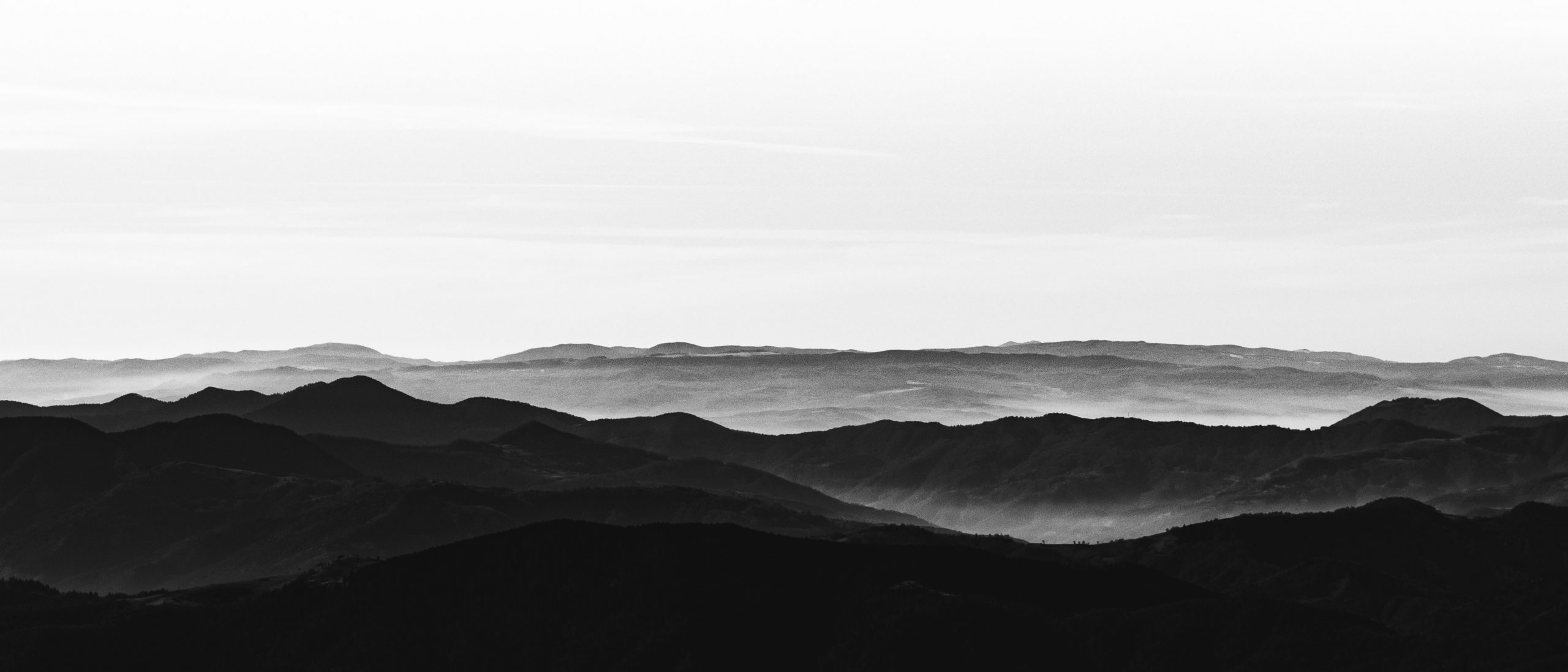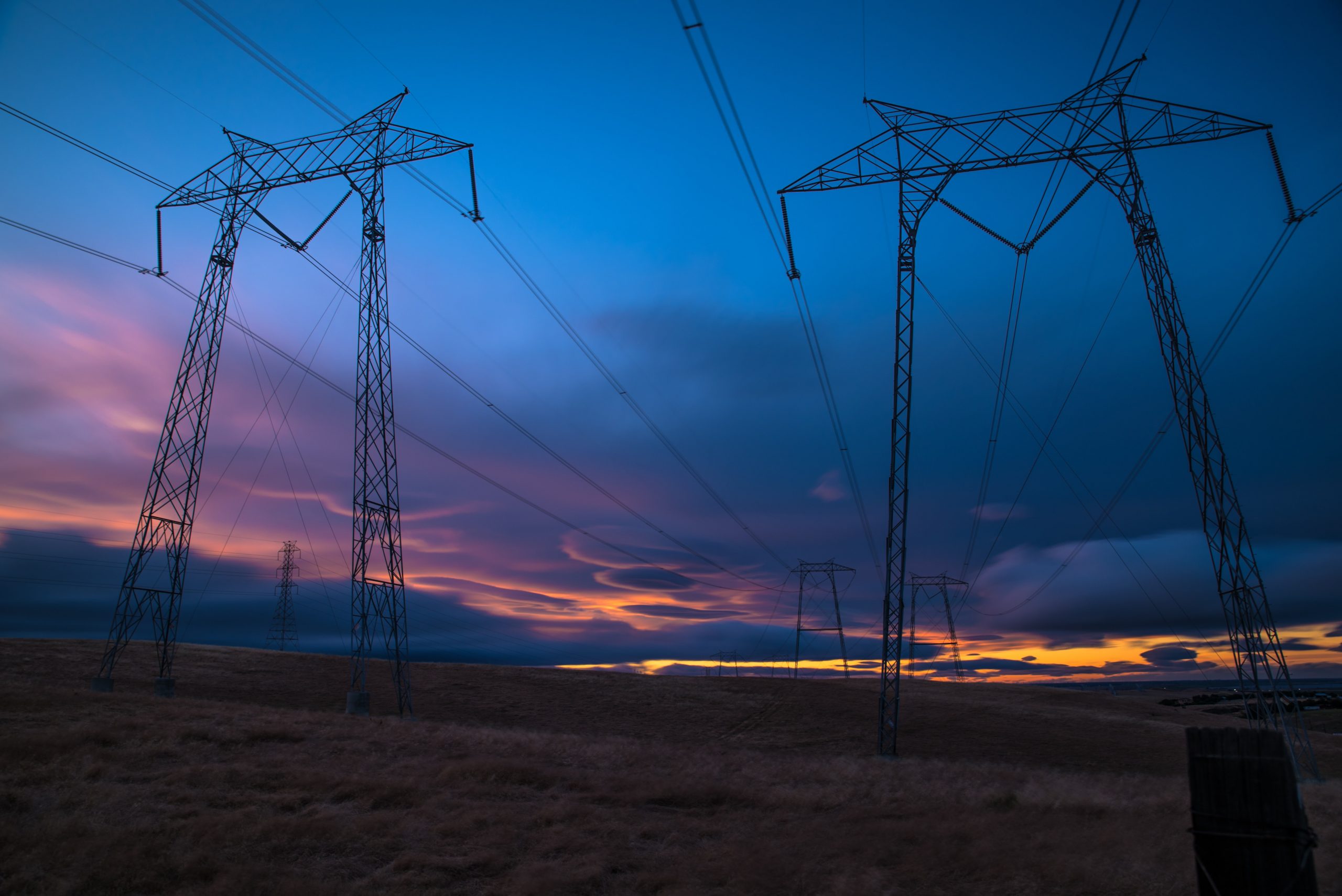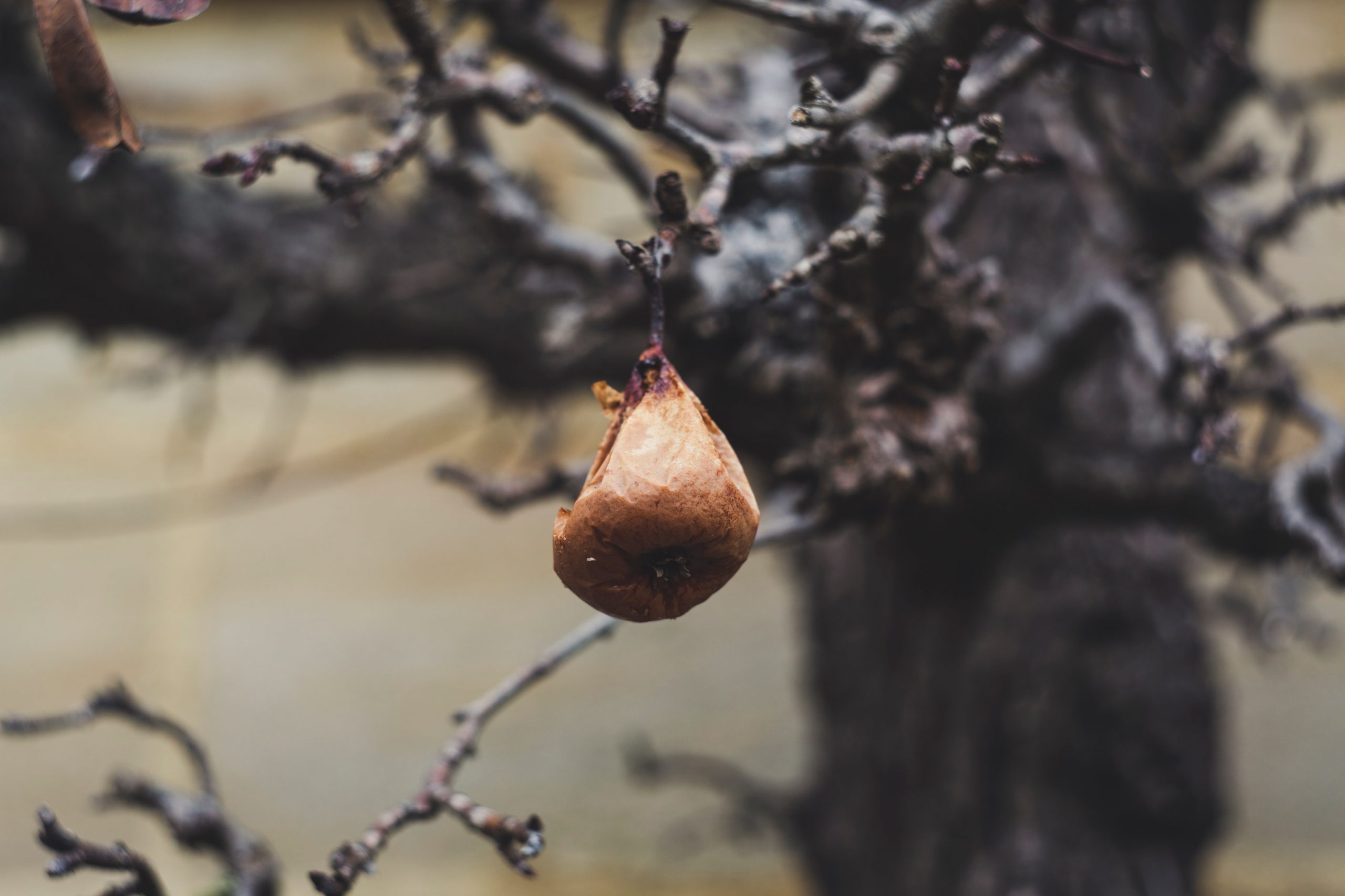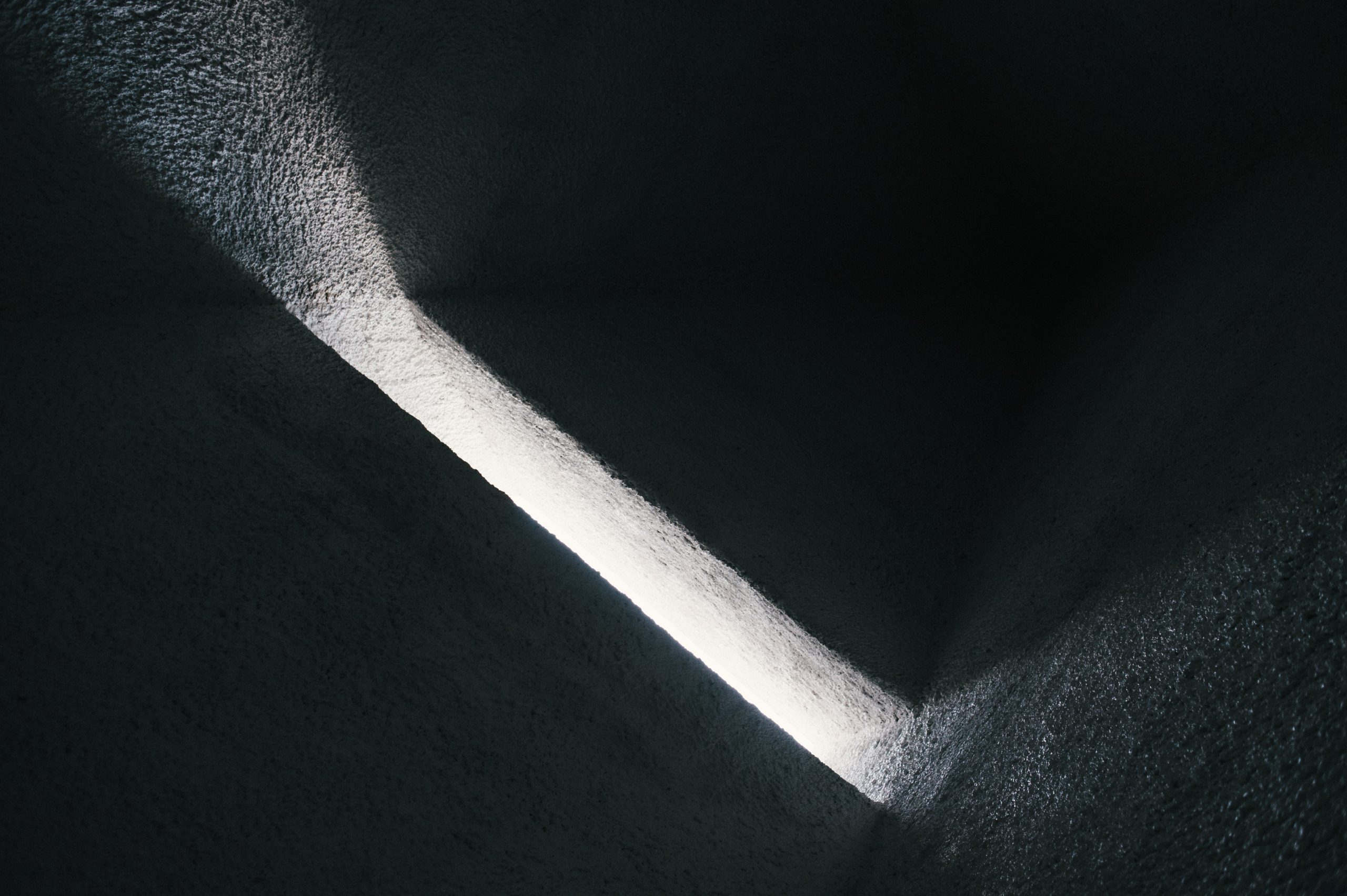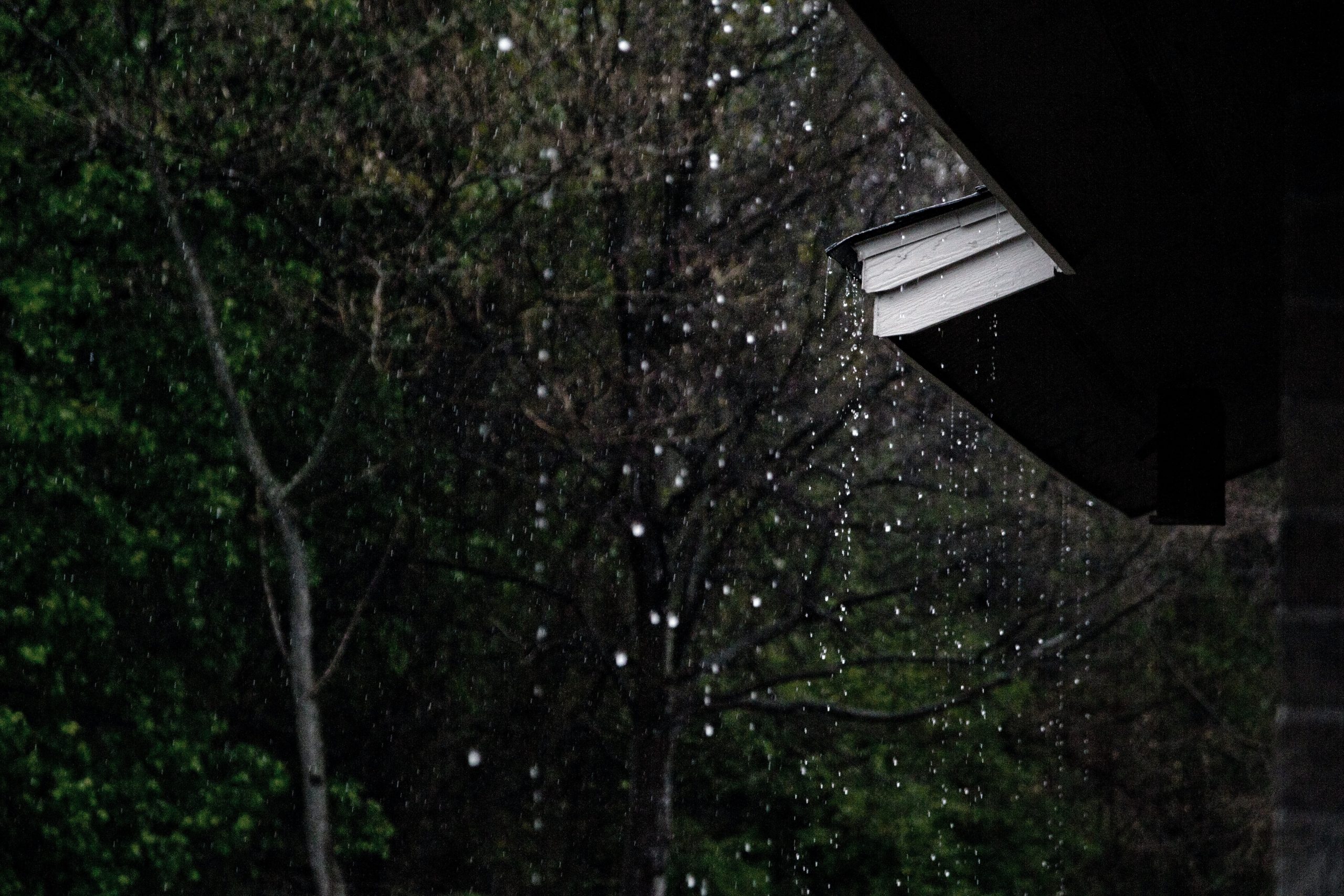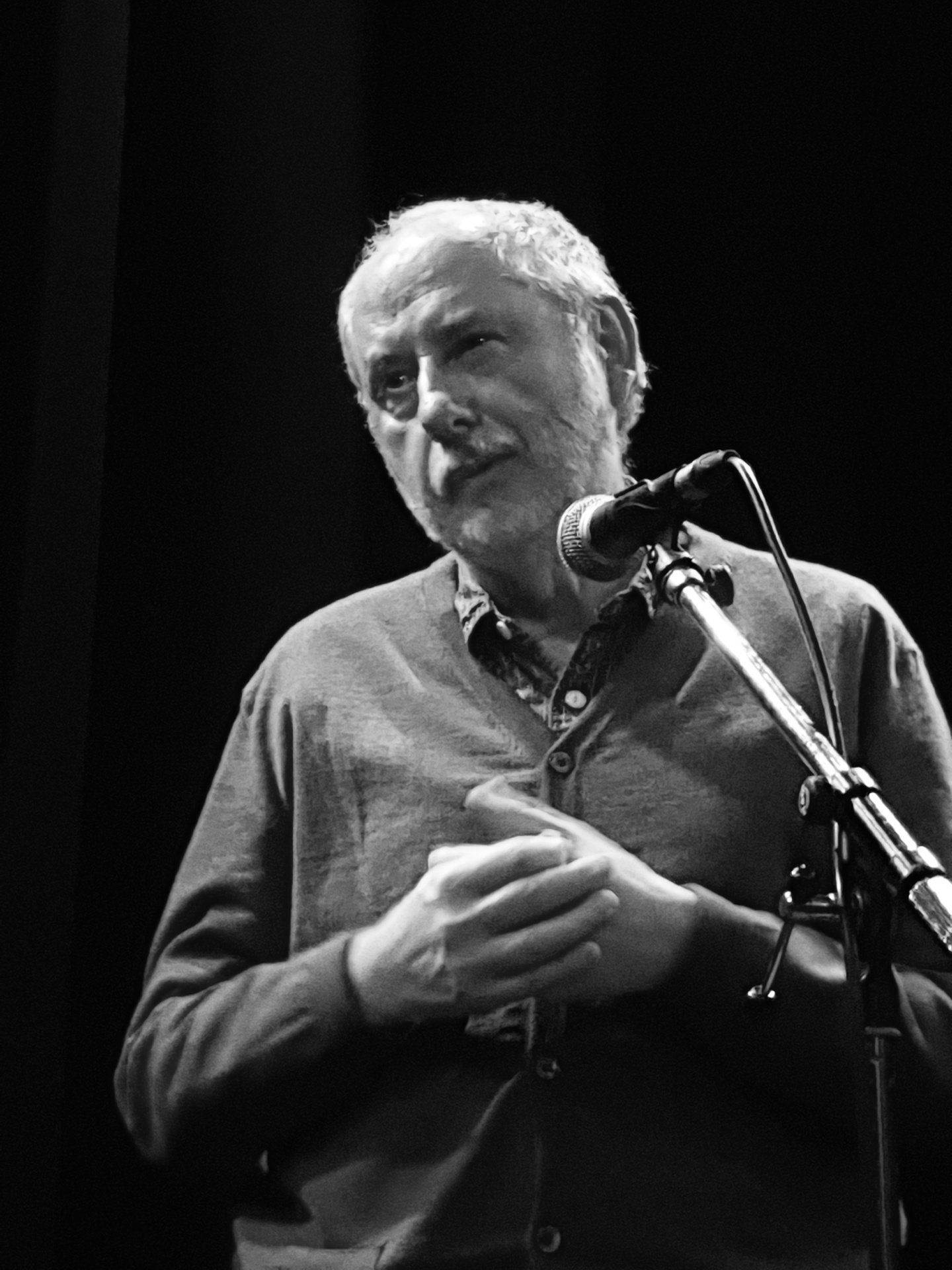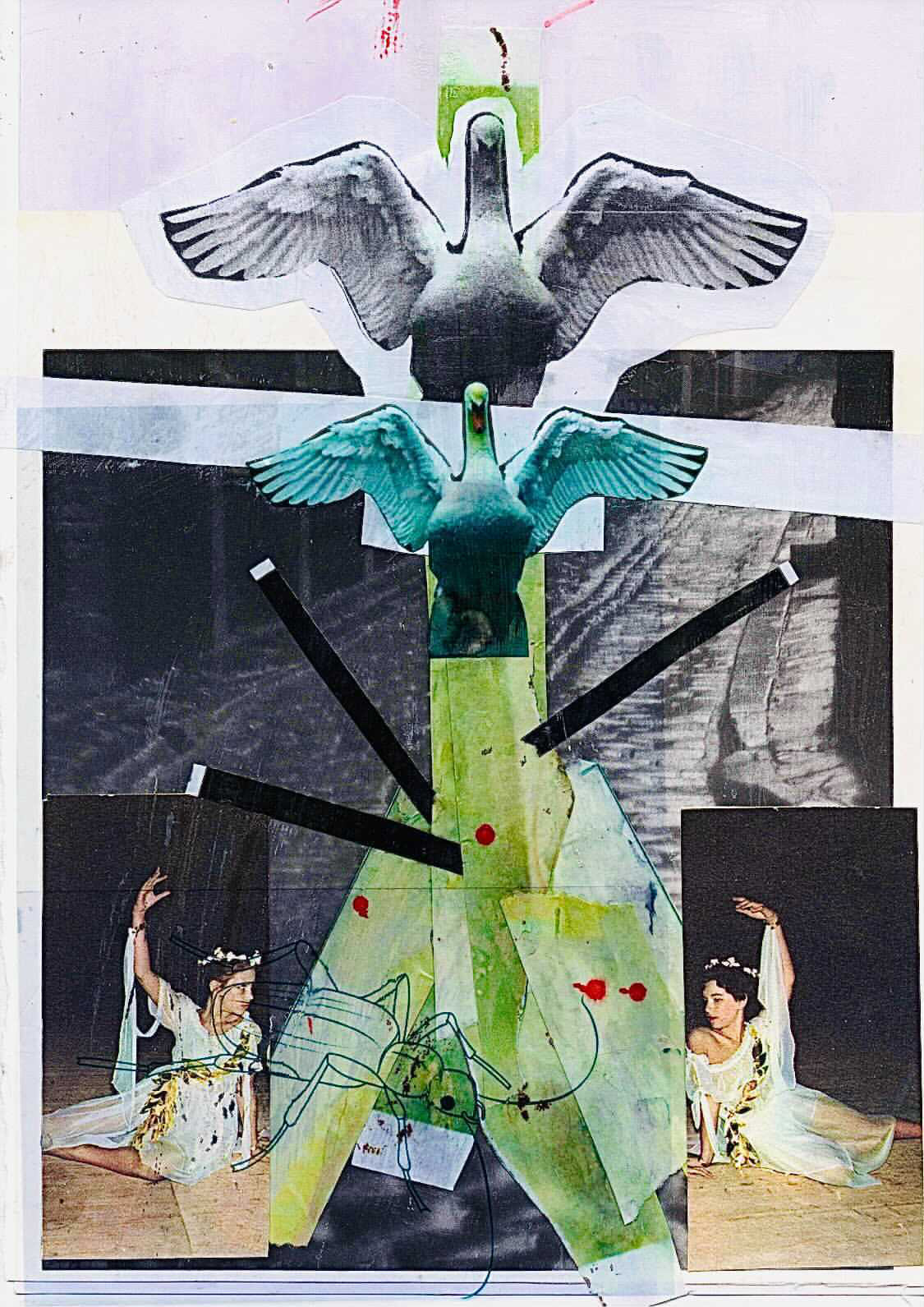Gasometer Music
Whereas in this city,
a deserted square at lunchtime,
there might be pigeons round its fountain,
leaf-shadow mottling the stone,
there might be, on the air, a student
practising cadenzas,
chord cascades, Rachmaninoff,
and might be love-names scored in benches’
time-signatures of scratch or stain –
here in our vicinity
a ring-road’s lifting traffic over,
not far from the Madonnina
afternoons will wash it clean
of any sound, sense, or sensation
and beyond a depths of sleep
another deep remains unfathomed …
Echoes from gasholders singing,
they’re enough to put you off its scent!
The Invidious Signs
From our side of the railway tracks
out to districts where this city
shows intent, expensive features,
avenues’ azure road-sign arrows
for Milano, Brescia, Mantova, La Spezia
would leave me in their quandaries –
placenames promising a continuity
which couldn’t be, the distances given
with destinations withered if I even
thought of choosing them …
Later, through an August’s dogdays
on their shady sides I’d venture
out to streets and boulevards
wanting to be you, exogamous couples
who’d chosen here for your own reasons –
would envy you the games of cards,
pastries tasted, middle seasons,
fogs, complaints, the local irritations,
even your sometime ill-lived years
for our passed-elsewhere ones.
Next Slide Please
‘… and in what seems
capricious sequence.’
Roy Fisher
After a further pandemic
of news about vaccines, I take
a brisk walk round the lake
and find its paths impassable,
their margins trampled wider,
find this same Egyptian goose is
billing in the sodden grasses’
trodden remnant ice.
*
No, not following the science,
data theatre, only common sense,
a frightened fox, red Reynard,
darts between two privet hedges.
After a year, these streets I know
where thought settles at a wall’s foot
or in treetops whose woodpeckers
sound like far pneumatic drills.
*
Likewise, I slip past the traffic
light at the end of more roadworks
noticing this present tense’s
counterfactual memories
as if to elegize the day –
a day turned into exercise
books of modelled prophecies
and no one giving way.
*
Snowdrops’ fresh tears wobble
under sudden gusts while
in the perishing air above,
look, there, a solitary vapour trail.
Then, next slide, please, see flakes of snow
blown across a misted window
where – like the number blizzards –
they tumble, melting now.
Later Manifestos
Homeless Thought
A last truck parked on standing water,
surface run-off, gusted leaves
drowned in overflowing drain pools:
nothing’s only good or bad,
think what you will, and nothing unalloyed
for thought here in its homelessness …
It follows beaten paths through woods
yearning to be somewhere,
to be somewhere else.
Upper Redlands Road
As an old dairy with compass-point vane
and moss-encrusted roofline
recalls when downs were farmland,
now, thoughts’ local haunts,
they’re going where your feet decide
to gasometer and Chilterns
hazy ‘in these gin-clear skies’
as a weather person’s words would have it …
Feeding Bird
That white mansion, Caversham Heights,
old Cold War listening station,
it comes clear right across the valley
here from Earley Rise.
In earlier, raking sun displayed
red berried branches, twigs,
each with a droplet on its tip,
stop me, like a feeding bird
attracted to their catch-light pearls.
Parenting
Likewise, brickwork’s moss-humped capstones
cut through drizzle, mist, miasma,
as what once seemed definite
(that exercise, those distances)
is pointed at routinely now,
vanishingly faraway –
*
like the whole of a life intimidated.
Look, a mother coot dips down
to feed her five young balls of fluff.
You scare a fledgling woodpecker.
Up it flies through chilly air
where thought might find a home.
Buried Country
Then, daily, on these built-up pavements,
over cracked, root-buckled flags
I think to glimpse, as from a ridgeline,
the landscape’s reconfigured views,
well-hidden, buried country,
country before us and beyond
this parenthesis, still open,
its minute slice of time.
Two Cities
Grays Inn Road
Just in time the leafage alters.
Beech and maple lead the way.
After hours of grey cloud cover
air clears and long shadow,
a slanting light, the sunset
enlivens rooftiles, chimneys …
Eurostar
A first day of St Martin’s summer
we’re as ever in its doorway
where the possible turns to fact:
a sunny, pale blue mackerel sky
beyond the morning’s mist and debris,
us pulling from St Pancras Station
to be sieved by memory.
Rive Gauche
In this latest dispensation
– a passport stamp for souvenir –
and after all the preparation,
I can’t lie, with your just-in-time
supply chains groaning on the day
we sense a thread of cooling breeze
as if joy always followed pain
whatever might be meant
by saying hope is violent
in sunlight down along the Seine
aglitter and aglow.
Métro Station
Dusk walking and we chance
on one art deco station’s
commemorative plaque
in shadowed street, deserted,
bereft of any apparitions
sketched out white on black.
Down and Out
Even so, still, homeless people
settled in the doorway
of a Bon Marché department store
endure our passing on display
with strange, affectless stoicism
when just in time the darkness falls
on sleeping bags and cardboard
as like fifty years before.
Chanson
Then as from pure association
remember Mohammed Sceab
passing Rue des Carmes
or Verlaine by the Rue Mouffetard
and on Rue Monge we find a way
through street-doors to the small Arena
where lovers come and children play
at football now, its charms
intact, intact despite the times,
only to find ourselves in tears
whether ravished by the song
a street musician jazzes on
or gone behind their burnt cathedral
by work still to be done
The Worse
When Faustus sacked Mephistopheles,
remember, all hell breaking loose
– pandemic on pandemonium –
I can’t lie, with your just-in-time
supply chains groaning, I can’t lie,
no gain, not meaning to deceive
in queues at the Gare du Nord to leave
and get where his are coming home.
Underground
Dark foreground masses looming somewhere
in Mornington Crescent or Camden Town,
bright-lit distance overwhelms
with the Hammersmith and City Line’s
stage flats, theatrical chiaroscuro,
its pointed brickwork, smutted mosses
outcropping down the tunnel rock
and formed of speculation, losses,
a year’s-end ruin creeps into their designs.
Precinct
Later, more street music playing,
with all its fluent melancholy
echoing over a leaf-littered square,
the shopping centre cannot hold,
has boarded up or white-swirled windows,
some people resting here and there …
That’s how we find ourselves safe home
given the times, now, just in time.
ON BOOKER AVENUE
for Paul Francis
Never too late for a happy childhood!
Especially when a west wind
ruffles waveforms into whitecaps,
we’re following old field walls,
red sandstone walls from different era,
fringes of a storm blown through.
They take us down where tidal river
opens up towards the Wirral
and in this weather, changeable,
with sunny spells between fierce showers,
we’re tracing out the fates of ships –
the Amakura, our example,
torpedoed 1942
on its run to Demerara,
surviving in a coffee shop name
there on Booker Avenue.
No, never too late for a happy childhood!
We’re pondering the fates of young
people with their body-image
problems, self-harms, spectre-like identities …
then pile in with our own
thinking green-gold tins of syrup
that brought forth sweetness from the strong;
we’re talking etymologies –
how amakura sounds like Japanese,
meaning ‘sweet-store’, its hold-cargoes
replenishments for Tate & Lyle
to take the bitterness off our coffees,
as Booker was the shipping line
that owned the S. S. Amakura,
even though we’ve no idea,
no, we can’t imagine
how it got its name.
Peter Robinson is a Professor of English at the University of Reading and poetry editor for Two Rivers Press. He grew up in Liverpool and has degrees from the Universities of York and Cambridge. After spending eighteen years teaching at various universities in Kyoto and Sendai, Japan, he now lives in Reading with his wife, a native of Parma, Italy. They have two daughters. Peter has published aphorisms, fiction, short stories, and literary criticism, as well as many books of poetry and translation, for some of which he has been awarded the Cheltenham Prize, the John Florio Prize, and two Poetry Book Society Recommendations.
His first volume of poems, Overdrawn Account, appeared from the Many Press in 1980, and since then he has produced eleven collections, with ten available in Collected Poems 1976-2016 (Shearsman Books, 2017) and the most recent in Ravishing Europa (Worple Press, 2019) [https://www.worplepress.com/ravishing-europa/]. He has also collaborated with artists on two books, Bonjour Mr Inshaw with David Inshaw (Two Rivers Press, 2020) and English Nettles and Other Poems (Two Rivers Press, 2010, and 2022) with Sally Castle. His latest volume of poetry, Retrieved Attachments, from which some of the poems published here have been taken, is forthcoming in February 2023.
Peter’s fiction includes a collection of short stories, Foreigners, Drunks and Babies, published by Two Rivers Press in 2013, his first novel, September in the Rain, which came out from Holland House Books in 2016, and his fictive psycho-geographical exploration of Reading, combined with state of the nation report and Crusoe obsession, The Constitutionals, which also appeared from Two Rivers Press in 2019. Alongside his own writing Peter has been a dedicated translator of poetry, especially from the Italian. His latest publication is Reports after the Fire: Selected Poems of Pietro De Marchi (Shearsman Books, 2022). He is currently completing a translation of In Rhyme and Without: The Complete Poems of Giorgio Bassani with Roberta Antognini.
His work has been extensively reviewed, and two collections of essays on his writings have been published to date, The Salt Companion to Peter Robinson edited by Adam Piette and Katy Price (Salt Publishing, 2007) and Peter Robinson: A Portrait of his Work ed, Tom Phillips.
